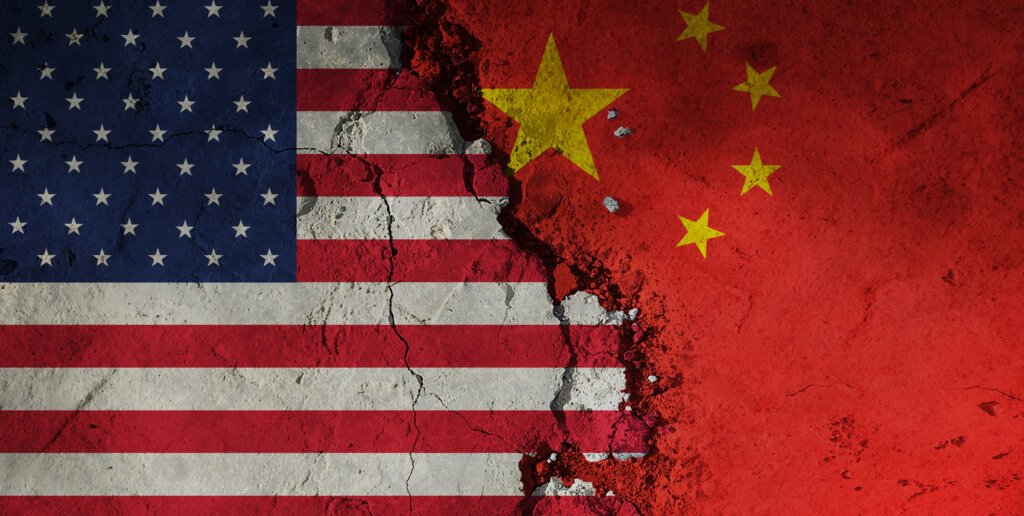- Chinese gaming and animation find global audiences.
- CreateAI’s CEO says AI and culture will shape China’s entertainment role.
China’s gaming and animation industries are no longer just local success stories. With titles like Black Myth: Wukong and Ne Zha 2 drawing attention from global audiences, the country has shown its ability to produce content that travels well beyond its borders. At the same time, rapid adoption of artificial intelligence is reshaping how stories are made, blending machine efficiency with human creativity.
Tech Wire Asia spoke with Cheng Lu, President and CEO of CreateAI, about how Chinese studios are redefining entertainment, the role of AI in production, and what the future holds for immersive storytelling.
China’s growing influence in global gaming and animation

Asked about China’s role in shaping global entertainment over the next decade, Cheng points to the momentum already visible in the market. “China’s gaming and animation industries are gaining global dominance. Blockbusters like Black Myth: Wukong and Ne Zha 2 are showcasing our ability to captivate audiences worldwide,” he said.
That influence is backed by strong numbers. According to the “2025 H1 China Game Industry Report” from the Game Publishing Committee, the industry generated RMB 168 billion (USD 23 billion) in sales revenue in the first half of 2025 – a 14% year-on-year increase. Chinese self-developed games earned USD 9.5 billion overseas, underscoring their reach in a global market worth around USD 250 billion.
Cheng sees the next decade as one where Chinese studios can lead in immersive, AI-enhanced storytelling. “Fueled by rapid AI adoption and investment in creative production, Chinese studios are redefining entertainment with innovative technology and cultural storytelling,” he explains. “Over the next decade, China is likely to lead in immersive, AI-enhanced storytelling and cross-platform experiences, shaping global trends by blending technology with cultural heritage.”
Balancing AI efficiency and human artistry
AI has become more visible in creative production pipelines, raising the question of how to balance machine efficiency with human artistry. Cheng notes that animation, especially 2D, has long been labour-intensive. Scriptwriting, keyframing, and colouring often slow production, particularly when there’s a shortage of skilled animators.
Here, AI can make a difference without displacing artists. “AI can help studios produce higher-quality content more efficiently without sidelining human creators,” Cheng says. Tools like Animon.ai can turn simple images into anime videos, reducing repetitive tasks and giving artists more time to focus on storytelling.
The idea of synergy – AI handling technical tasks while humans guide the creative heart – runs through Cheng’s perspective. He points to the company’s recent release for example: “Our Animon.ai Studio Version, launched in July, exemplifies this approach by providing creators with tools like high-quality 2K visual generation and consistent keyframe editing, enabling both professionals and beginners to streamline workflows while retaining full creative control.”
Making local stories travel
Chinese titles often draw from local myths and traditions but still manage to resonate with audiences around the world. Cheng sees lessons here for other markets.
He highlights CreateAI’s game Heroes of Jin Yong, which reflects the role of chivalry in Chinese wuxia culture. “Chivalry is something that resonates in the world, but manifests uniquely in China with wuxia culture,” he explains. The broader lesson, he says, is to take cultural dynamics rooted in one place and show how they reflect universal human experience.
“All markets can consider cultural dynamics inherent to themselves that are shared in the human experience, and show how those come to fruition in their unique culture,” Cheng says. Done well, this approach lets people outside the culture connect to familiar values while sparking curiosity about a new one.
The future of immersive entertainment
Advances in motion capture, real-time rendering, and AI animation are already changing the entertainment industry. Cheng expects those shifts to accelerate. He outlines two big trends:
- The gamification of everything. “Top content is becoming more immersive and interactive,” Cheng says.
- Cross-media synergies. “Blending between what is a video game and TV show, and video game IP are being made into anime shows, and vice versa.”
At CreateAI, the team is exploring both directions. With the Three-Body Problem franchise, they are working on an anime feature film and a AAA video game, based on the second book of the series. The goal is to launch them side by side. “The generates maximum consumer exposure and greatly enhances fan experience,” Cheng says.
As AI gains the ability to generate characters, voices, and entire worlds, questions about authenticity and ethics are unavoidable. Cheng is clear on this point: “We believe in ‘safe AI’ and will do our part to promote the generative AI industry to grow according to high ethical values and local regulations.”
Asked to compare how AI and gaming innovation differ in regions, Cheng avoids making sweeping claims. “AI and gaming are truly global industries facing global competition,” he says. Still, he notes that companies succeed by excelling in three areas: creating compelling intellectual property, applying new technology for efficiency or storytelling, and using effective distribution channels.
Skills the next generation of China’s gaming creators will need
Looking ahead, Cheng sees a need for a new mix of skills among animators, developers, and storytellers. “The next generation of animators, game developers, and storytellers will need to blend technical proficiency with creative adaptability to thrive in an AI-driven industry,” he says.
A key mindset is to see AI as a tool for expansion rather than replacement. “Viewing AI as an opportunity to create more content, rather than a replacement, is key,” Cheng stresses. He also underlines the importance of cultural sensitivity and narrative innovation – qualities that make stories resonate beyond their home market.
Opportunities in China’s gaming and animation with AI
When asked what excites him most about the future, Cheng points to AI’s potential to open creation to more people. “At CreateAI, what excites us most is AI’s potential to democratise creation and deliver deeply personalised, immersive experiences,” he says.
“Our tools allow any fan to become a creator, freeing new opportunities in the creative economy, while adaptive narratives create immersive experiences,” Cheng explains. He sees breakthroughs coming from cross-platform projects, using global IPs like Heroes of Jin Yong and The Three-Body Problem to build both anime and AAA games.
That approach, he says, creates communities of fans and creators who help redefine how stories are consumed. “We have a full pipeline of projects currently, but we are always opportunistic to work with strong IP holders, using our technology and development know-how to innovate and bring immersive content to a global audience.”
Closing thoughts
From China’s expanding influence in the global gaming market to the role of AI in reshaping production, Cheng Lu’s perspective underscores how technology and cultural storytelling are increasingly intertwined. The future of entertainment, he suggests, won’t be about choosing between AI or human creativity but about finding new ways for them to work together.
Want to learn more about AI and big data from industry leaders? Check out AI & Big Data Expo taking place in Amsterdam, California, and London. The comprehensive event is part of TechEx and is co-located with other leading technology events, click here for more information.
AI News is powered by TechForge Media. Explore other upcoming enterprise technology events and webinars here.








